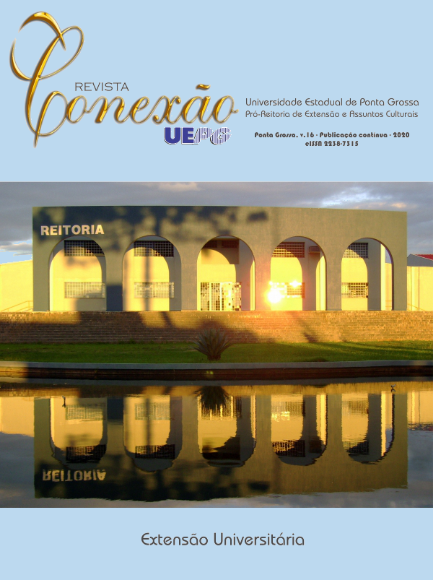A O PRÉ-VESTIBULAR SOCIAL TEOREMA COMO LÓCUS DE DEMOCRATIZAÇÃO DO ACESSO AO ENSINO SUPERIOR E DA INICIAÇÃO À DOCÊNCIA NA UENF
DOI :
https://doi.org/10.5212/Rev.Conexao.v.16.15158.038Résumé
Este artigo tem como objetivo analisar a experiência do Pré-Vestibular Social Teorema, um projeto de extensão que funciona na Universidade Estadual do Norte Fluminense Darcy Ribeiro (UENF). O Teorema foi criado em 2004 para auxiliar estudantes que desejassem frequentar um curso pré-vestibular, mas que não dispunham dos recursos financeiros necessários. A pesquisa utilizou a análise documental e entrevistas semiestruturadas realizadas com os coordenadores e professores do curso. As contribuições teóricas de Zago (2009), Nascimento (2009) e Manchur; Suriani e Cunha (2013) foram utilizadas para estabelecer o corpo analítico do estudo. Os resultados obtidos confirmam a importância do desenvol-vimento de práticas extensionistas em instituições de ensino superior públicas. Além disso, a partir das análises dos resultados foi verificado que o Pré-Vestibular Social Teorema tem contribuído para o aprimoramento de experiências docentes dos pós-graduandos envolvidos no programa, e ampliado o acesso à educação superior para os estudantes oriundos das classes subalternas.
Téléchargements
Téléchargements
Publié-e
Numéro
Rubrique
Licence
a) Os autores mantêm os direitos autorais e concedem à revista o direito de primeira publicação, com o trabalho simultaneamente licenciado sob a Creative Commons Attribution License que permite o compartilhamento do trabalho com reconhecimento da sua autoria e publicação inicial nesta revista.
b) Ao submeter um artigo à Revista Conexão UEPG e tê-lo aprovado os autores concordam em ceder, sem remuneração, os seguintes direitos à Revista: os direitos de primeira publicação e a permissão para que a Revista redistribua esse artigo e seus metadados aos serviços de indexação e referência que seus editores julguem apropriados.
c) Os leitores são livres para transferir, imprimir e utilizar os artigos publicados na Revista, desde que haja sempre menção explícita ao(s) autor (es) e à Revista Conexão UEPG e que não haja qualquer alteração no trabalho original. Qualquer outro uso dos textos precisa ser aprovado pelo(s) autor (es) e pela Revista.

Este obra está licenciado com uma Licença Creative Commons Atribuição 4.0 Internacional.





